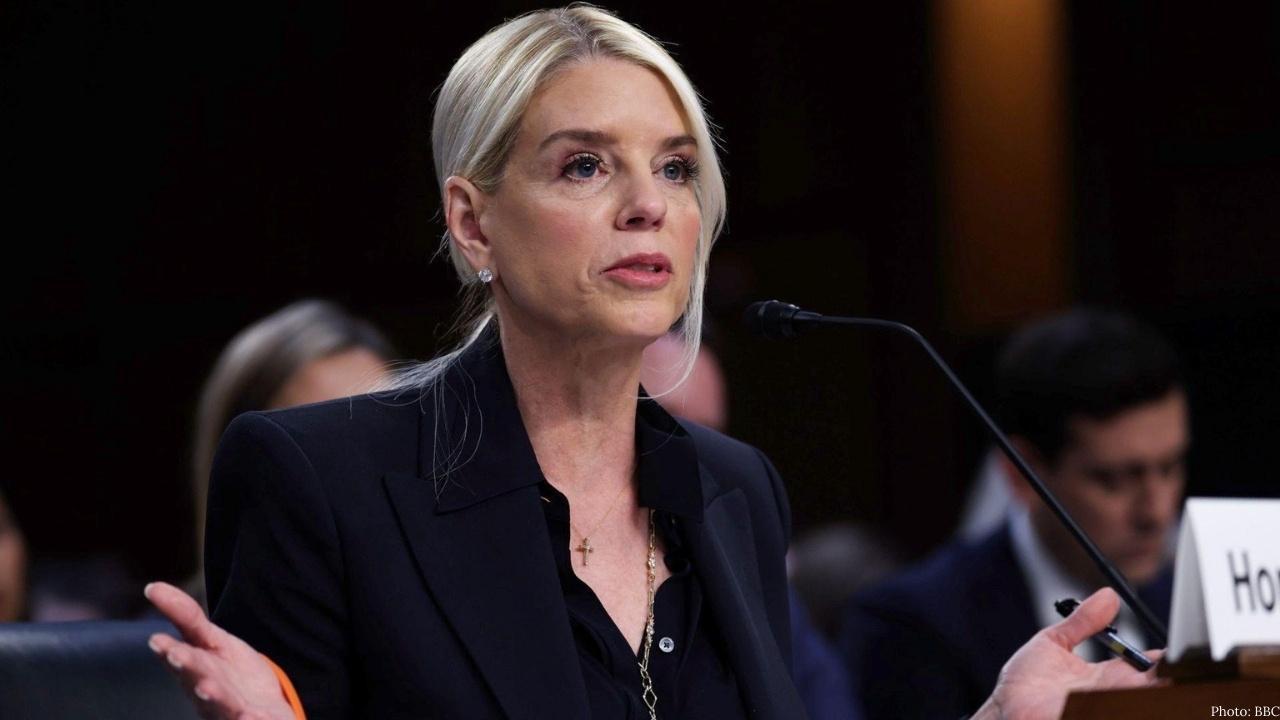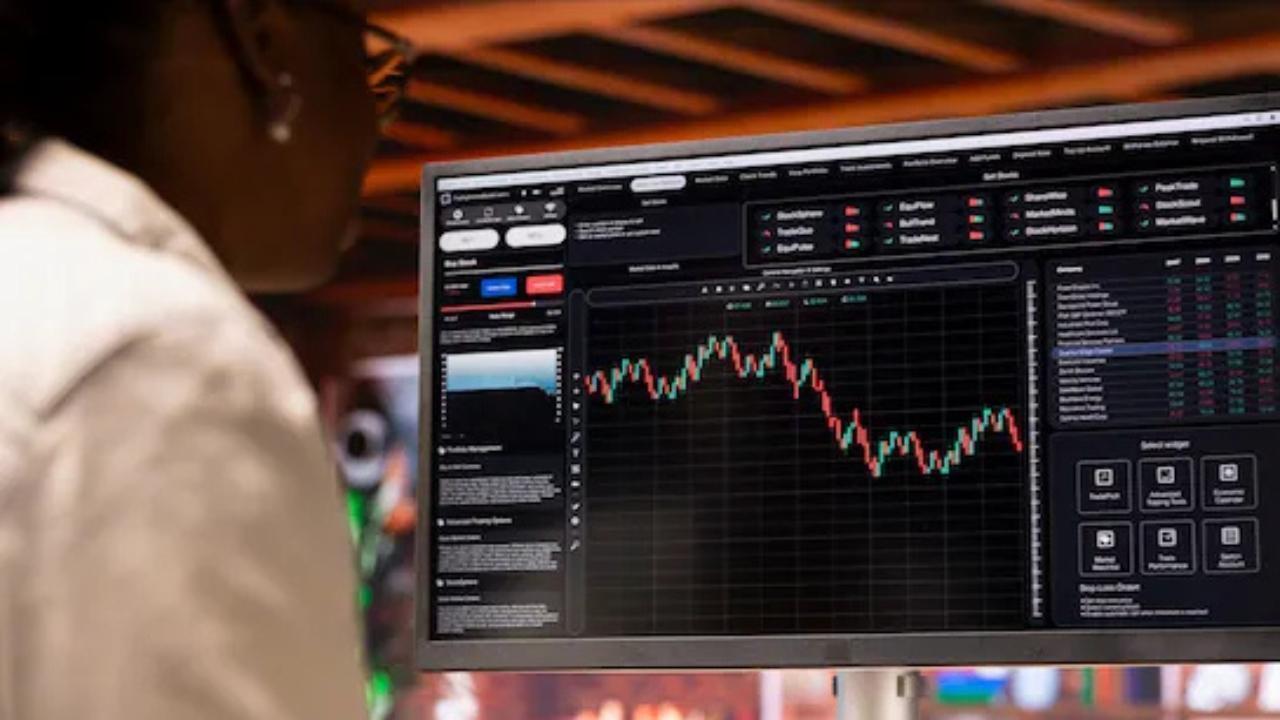You have not yet added any article to your bookmarks!

Join 10k+ people to get notified about new posts, news and tips.
Do not worry we don't spam!

Post by : Anis Farhan
The global economy in 2025 is at a critical juncture. As protectionist policies surge and major economies harden their trade stances, the ripple effects are being felt across developing countries. According to the latest World Bank economic outlook, two-thirds of developing nations are now expected to grow more slowly this year than they did in 2024. The main culprit? Escalating trade wars, particularly between the United States and China, and the knock-on effects of shifting global supply chains.
The World Bank’s warning isn’t just a routine projection—it’s a red flag. The institution has called out the "drag" created by tariff hikes, non-tariff barriers, disrupted logistics, and geopolitical mistrust that’s now spreading across continents. For many low- and middle-income countries that depend on export-led growth, this environment is proving devastating.
At the heart of this economic disruption is the revival of trade protectionism, particularly by major economies. In 2025, the U.S. implemented sweeping new tariffs targeting strategic imports from over 60 countries, citing national security and domestic competitiveness. These moves have invited retaliatory tariffs, creating tit-for-tat dynamics that echo the damaging trade wars of the previous decade.
China, still a manufacturing powerhouse, has recalibrated its export priorities in response to these restrictions. Its pivot to markets in Africa, Latin America, and Southeast Asia is being met with resistance and scrutiny, especially around concerns of dumping and market distortion. The resulting uncertainty in global trade has caused investment flows to contract, especially in export-driven developing countries.
For smaller economies heavily reliant on external demand—such as Vietnam, Bangladesh, Kenya, and Mexico—these shifts are deeply destabilizing. Their trade surpluses are shrinking, currency volatility is rising, and domestic industries are struggling to remain competitive amidst rising import costs and falling export volumes.
The once-celebrated globalization of supply chains is undergoing a dramatic reversal. Multinational corporations are being pressured—either by policy, national security concerns, or investor sentiment—to "de-risk" their global operations. This has led to the growing popularity of terms like “friend-shoring,” “near-shoring,” and “China-plus-one,” all of which reflect efforts to reduce dependence on certain regions.
While this realignment may benefit some countries in the short term, it creates significant volatility for others. For instance, nations that built industrial zones around serving as parts of broader global value chains are now witnessing sudden contractions in foreign direct investment. Their infrastructure, labor markets, and financial systems—optimized for an interconnected world—are struggling to adjust.
Moreover, the cost of doing business globally has increased. Freight rates, compliance costs, and delays due to customs disputes or sanctions are contributing to inflationary pressures in emerging markets. This, in turn, is hitting the poorest households hardest, as food and energy prices soar across developing nations.
Another major concern flagged by the World Bank is the decline in capital inflows into developing countries. In times of global uncertainty, investors traditionally seek safety in developed markets or hard assets. The current climate—marked by sanctions, banking de-risking, and policy unpredictability—has led to a marked decrease in private capital available for emerging markets.
Sovereign bond spreads have widened in many low-income countries, making it more expensive to borrow. For countries with already high debt burdens, like Pakistan, Ghana, or Argentina, the path to recovery is narrowing fast. Development banks and donor agencies are stepping in, but the financing gap remains vast.
Venture capital, too, has cooled off significantly in regions like Sub-Saharan Africa, South Asia, and Central America. Promising start-ups and small businesses that previously thrived on regional expansion and tech innovation are now facing cash crunches as global capital turns cautious.
The drag from trade wars is not uniform—it affects sectors differently depending on their exposure and structure. Manufacturing hubs in Asia and Africa have seen reduced orders and thinning margins. Textiles, automotive parts, and electronics—industries built on slim margins and scale—are particularly vulnerable to tariff hikes and logistics inefficiencies.
In agriculture, developing countries face a dual problem: export access and import affordability. Nations reliant on food exports, like Brazil or Ethiopia, are encountering tighter phytosanitary standards and higher shipping costs. Simultaneously, countries dependent on imported grains or fertilizers, such as many in the Middle East and North Africa, are experiencing severe inflation in basic goods.
The technology sector, once a bright spot for developing economies, is also feeling the pinch. Chip bans, cloud restrictions, and digital service taxes are fragmenting the global tech environment. While some countries have attempted to build localized ecosystems, the absence of international cooperation and capital is hindering meaningful progress.
In the face of these daunting challenges, many developing countries are scrambling to adjust their policies. Some are turning inward—subsidizing local industries, imposing export bans, or trying to reduce import dependency. Others are seeking new trade deals with alternative partners, hoping to diversify away from volatile superpower-dominated routes.
Several multilateral efforts are underway to stabilize the situation. Organizations like the World Trade Organization and International Monetary Fund are calling for coordinated responses and equitable access to global markets. However, political will among major powers remains fragmented, making such cooperation difficult to sustain.
A few countries are showing resilience. Indonesia, for instance, has launched new domestic value-added policies to reduce reliance on raw exports. Morocco is investing in renewable energy exports to diversify its trade basket. And Vietnam, while hit by U.S.-China trade tensions, continues to benefit from strong European and Japanese investment partnerships.
The World Bank's projection of slower growth across two-thirds of developing nations should not be seen in isolation. It's a potential warning of a much deeper crisis—what some economists fear could be a “lost decade” for development.
If these trends continue unchecked, poverty reduction goals may be reversed, income inequality could worsen, and public services may erode in already fragile states. Political instability, rising debt defaults, and migration pressures could follow, creating further instability in the global order.
The decline in global trust and cooperative frameworks—exacerbated by the very trade wars now unfolding—is weakening the institutional fabric that once supported global development efforts. And while individual countries may try to navigate these challenges independently, history has shown that fragmented responses to global economic shocks often lead to prolonged stagnation.
Despite the grim outlook, there remains an opportunity for course correction. Reinvigorating global trade cooperation, renewing investment in multilateral financial institutions, and promoting transparency and fairness in economic policy can offer a more inclusive recovery path.
For developing nations, the way forward lies in strengthening regional trade, building self-reliant industries, and diversifying their economic engines. They must also invest in human capital, digital infrastructure, and green innovation—areas that can future-proof economies against similar shocks.
But ultimately, it will require leadership from both the Global South and North to restore balance in trade relations. The clock is ticking, and the longer trade wars drag on, the harder the recovery will be.
This article is intended for informational and editorial purposes only. It is based on current data, public reports, and economic forecasts available at the time of writing. The content does not constitute financial, investment, or policy advice. Readers are encouraged to consult official sources and professional experts before making any economic or trade-related decisions.










Apple’s iOS 26.3 Update Is Here — Why Millions of iPhone Users Should Install It Now
Apple has rolled out iOS 26.3 as a critical update for eligible iPhones, bringing important security

Pam Bondi’s Explosive Epstein Hearing: Four Moments That Defined the Testimony
US Attorney General Pam Bondi faced intense questioning in a House Judiciary Committee hearing that

Epic T20WC Thriller: South Africa Triumphs Over Afghanistan in Double Super Over Clash
An exhilarating account of one of the most dramatic matches in ICC Men’s T20 World Cup 2026 history,

Abhishek Sharma Hospitalised With Stomach Infection, Doubtful for India’s T20 World Cup Match Against Namibia
Indian opening batter Abhishek Sharma has been hospitalised with a stomach infection and is unlikely

Mass Shooting in British Columbia Leaves 10 Dead in One of Canada’s Deadliest Attacks
A tragic mass shooting at a high school and nearby residence in Tumbler Ridge, British Columbia, has

More Than a Ticket Out: How IPOs Are Redefining Value for Startups and Investors
In the evolving startup ecosystem, initial public offerings (IPOs) have emerged as far more than exi